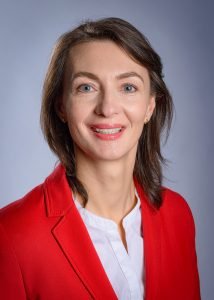Theiss Maria

Theiss Maria
dr hab. Maria Theiss – Ph.D. in humanities with specialisation in politics (2006), habilitation in social sciences with specialisation in politics (2019); currently an assistant professor; in years 2013-2014 vice-director of the Institute of Social Policy, in years 2007-2013 student affairs officer in Institute of Social Policy. Since 2008 deputy editor and since 2020 editor-in-chief of Problemy Polityki Społecznej. Principal investigator in research projects: EnTrust – Enlightened trust: an examination of trust and distrust in governance – conditions, effects and remedies, (years 2020-2024, Horizon 2020), TransSOL – European Paths to Transnational Solidarity at Times of Crisis: Conditions; Forms; Role-Models and Policy Responses, (years 2015-2018, Horizon 2020), LIVEWHAT – Living with Hard Times: How European Citizens Deal with Economic Crises and Their Social and Political Consequences, (years 2013-2016, 7. RF), leader of a project Local social citizenship in social policy – the case of education and care services for children under the age of 5 (years 2012-2015, National Science Centre, Poland).
Research interests
the influence of social policy on political attitudes and behaviours, policy feedback, social citizenship, public discourse in social policy, local social policy, social services and their informal aspects, street-level bureaucracy, social inequalities, qualitative research methods in social policy and politics
Unit
Department of Methodology of Political Science
Recent publications:
Theiss, M. (2022). How Does the Content of Deservingness Criteria Differ for More and Less Deserving Target Groups? An Analysis of Polish Online Debates on Refugees and Families with Children. Journal of Social Policy, online first.
Theiss, M. (2021). Local routes to preschool–access policies in Polish municipalities from a social citizenship perspective. European Journal of Social Work, 24(2), 290-301.
Zschache, U., Theiss, M., & Paschou, M. (2020). What is solidarity about? Views of transnational solidarity activists in Germany, Poland and Greece. Sociological Research Online.









